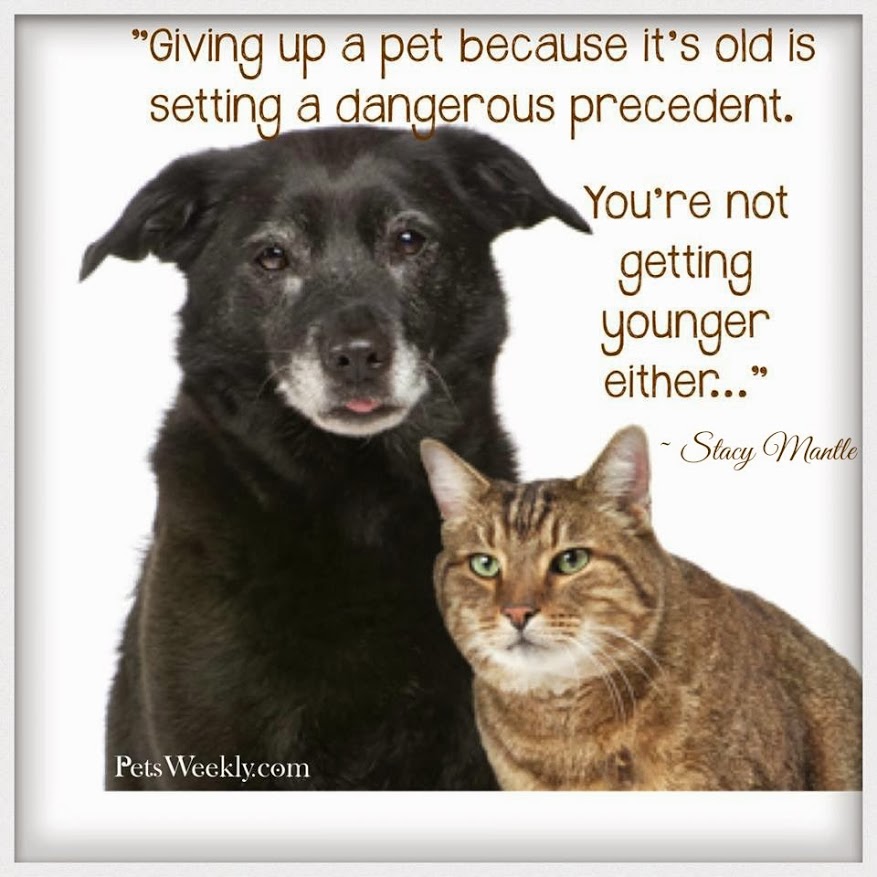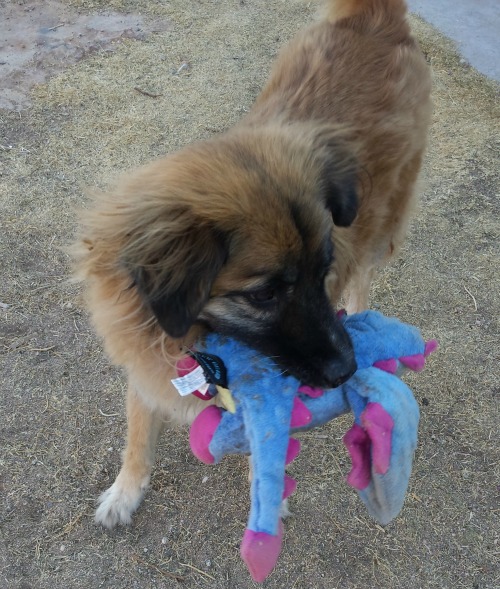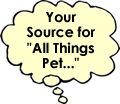Caring for Your Senior Dog
Share

 Cheiss is celebrating his 13th birthday this year and while he’s still in pretty good health, there are signs of his advanced age appearing before my eyes. He stumbles when chasing the ball. He doesn’t want to play for 30 minutes a night and is instead content with a few good runs. He is grumpy with the cats (who he at one time adored), and he snips at his canine siblings. We finally had to break down and put him on a daily dose of Rimadyl and he’s been on glucosamine supplements for over a year. It’s these things that remind me – none of us is exempt from aging.
Cheiss is celebrating his 13th birthday this year and while he’s still in pretty good health, there are signs of his advanced age appearing before my eyes. He stumbles when chasing the ball. He doesn’t want to play for 30 minutes a night and is instead content with a few good runs. He is grumpy with the cats (who he at one time adored), and he snips at his canine siblings. We finally had to break down and put him on a daily dose of Rimadyl and he’s been on glucosamine supplements for over a year. It’s these things that remind me – none of us is exempt from aging.
It’s a fact of life: we all get slower as we age and dogs aren’t any different. Some signs of aging are very apparent, like hair turning gray, but other signs are more subtle – for example your dog may play a bit less and sleep a bit more. It’s believed that dogs reach their senior years when they’re between seven and ten years of age, and while I”ve been very fortunate in having most of my rescued, mixed-breed dogs live to the ripe old age of 17, they do slow down much earlier.
Your dog has stood by you and shown you an abundance of love and now that he’s reached his senior years, there are a few things you can do to make his “golden years” more relaxing. These changes include alterations in diet, routine veterinary visits for screening, and new ways to keep your pet relaxed. This is especially important in high-energy dogs who have the propensity to hurt themselves at play.
[heading style=”2″ color=”#996633″ style_color=”#996633″]Diet Alterations are Necessary[/heading]
As your beloved pup grows older, his dietary needs change. This means that you’ll have to be more aware of what you’re feeding him and how often, to ensure he stays at a healthy weight and to help alleviate joint problems. Senior dogs should be fed more often, but in smaller amounts. Breaking up a regular sized meal into several servings can help your dog digest more easily.
Elder, overweight dogs are more prone to getting diabetes which is why it’s vital that you keep close tabs on your canine’s weight and help him shed any excess weight. Depending on the breed of your dog, your veterinarian could suggest feeding a dog food especially for seniors and usually you’d begin this food when your dog turns seven years old. The senior dog food is high in protein and low-fat which is just what your dog will need. Some breeds of dogs are known for certain health complications. For instance, the German Shepherd can develop joint problems. So don’t be shy and inquire about nutritional supplements that are suitable for your favorite pet’s age and breed.
 [heading style=”2″ color=”#996633″ style_color=”#996633″]Routine Veterinary Visits[/heading]
[heading style=”2″ color=”#996633″ style_color=”#996633″]Routine Veterinary Visits[/heading]
You should take your older dog in for his complete exam by a veterinarian twice a year. The veterinarian will examine your dog’s ears, eyes, heart, skin, mouth, fur and teeth. Your veterinarian will be able to assist you in maintaining his good health as well as inform you on how to keep him comfortable for the remainder of his life. While you’re at the office, why not have your dog’s teeth professionally cleaned? It’ll go a long way to aiding him in chewing his food easier.
There are many aging problems that your elder dog could suffer from and it’s a good idea to have him put through regular screening tests for early diagnosis and treatments of:
- Kidney and liver problems
- Diabetes
- Joint problems, including arthritis or dysplasia
- Cancer
There are rare behaviors that will need prompt attention from your veterinarian if they occur:
- Diarrhea, involuntary urination or constipation
- Changes in appetite or weight
- Incessant coughing or shortness of breath
- Stiffness or weakness
- Changes in behavior
[heading style=”2″ color=”#996633″ style_color=”#996633″]Helping Your Dog to Feel More Relaxed[/heading]
Ensure that your aging dog enjoys the latter part of his life. Just providing a nice, soft, warm blanket for him to lie on will do wonders in making him comfy (although we prefer that you give him an orthopedic bed which will help him to sleep better).
- Raised Feeders: If your large breed senior dog has arthritis or joint stiffness or dysplasia, purchasing a raised feeder and water dish so that he won’t have to bend over to reach them will be an immense help.
- Ramps: Dog ramps for any breed with arthritis are a good addition to aid him in getting to where he wants to go more easily.
- Temperature: Like elderly people, senior dogs just don’t tolerate changes in temperature like they did when they were young. They have a more difficult time regulating body temperature. This is why it’s critical that you never leave them out in the cold, the heat or the humidity.
Blindness: You aging dog could begin to lose his eyesight, so rearranging the furniture will make it easier for him to get around. Using tools like Tracerz for Blind Dogs, New Extended Release Scent, 84 Total Markers
will help him learn to navigate by scent rather than vision. Maintaining clutter- and obstacle-free floors will help lower his anxiety too. You may consider using markers to help him navigate the area more easily.
- Toys: The teeth often just aren’t what they used to be. Buying toys that are designed specifically for older pets will help them keep the teeth they have healthy. Check out products like Silver Tails for some soft-chew toys that are also good for the gums.
Our dogs give us many years of loyalty, friendship and love. It’s only fair that we return that love by keeping them healthy throughout their lives and making them as comfortable as we possibly can in their “golden years”.




